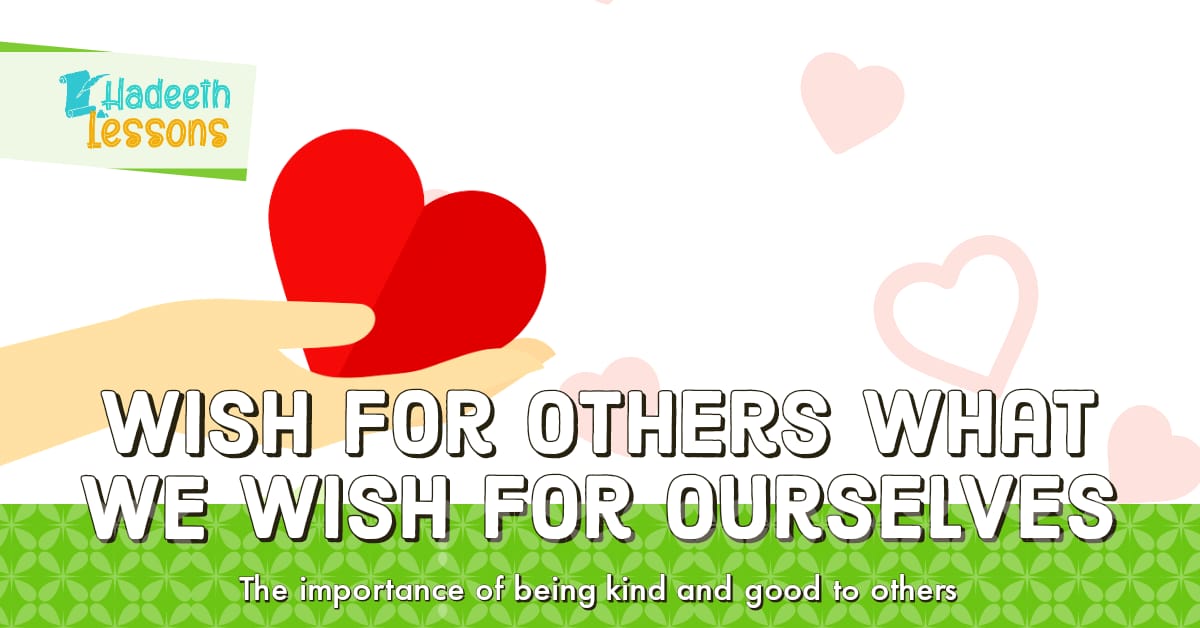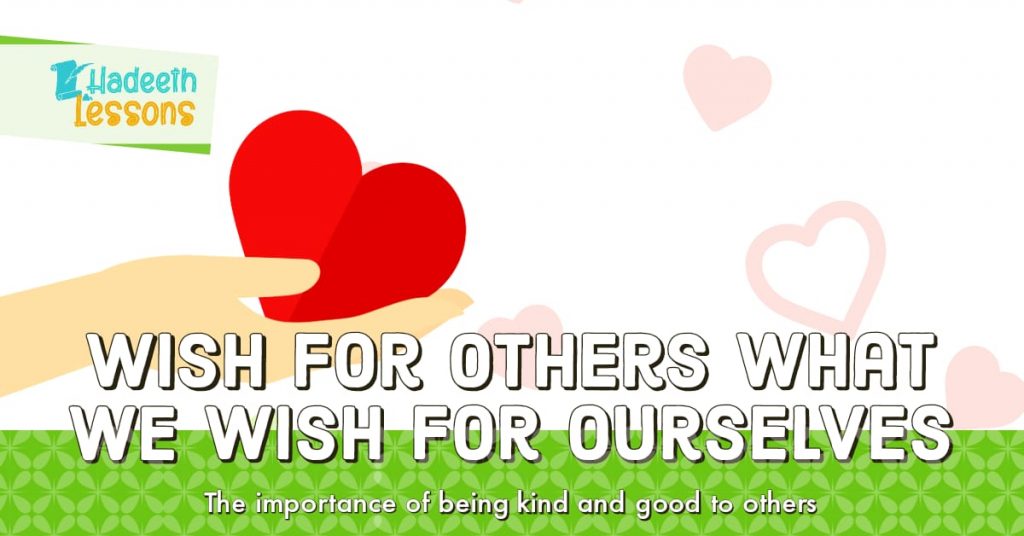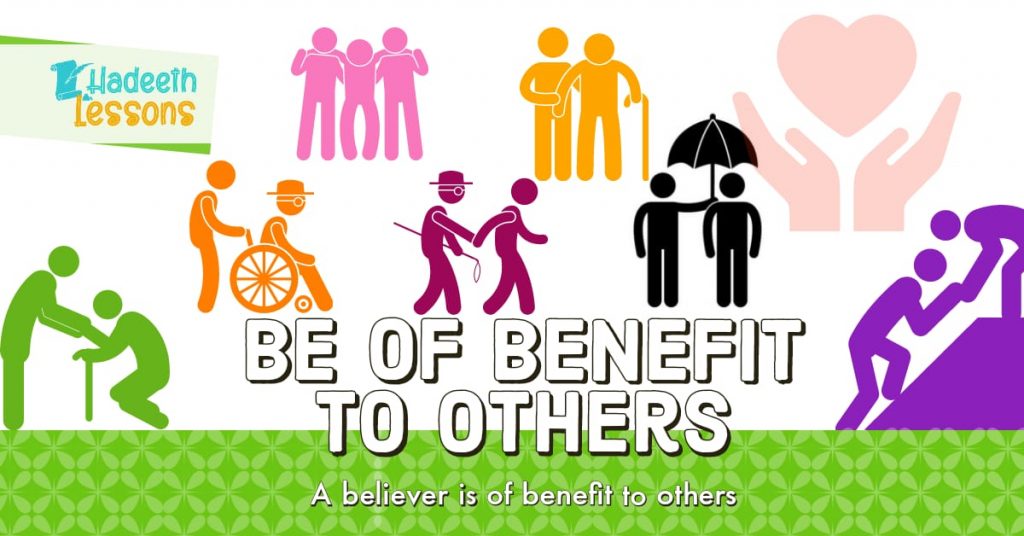
Memorise and practice a new hadeeth every week!
By Mawlana Junayd Makda Sahib
Wish for others what we wish for ourselves
لَا يُؤْمِنُ أَحَدُكُمْ حَتّٰى يُحِبَّ لأَخِيهِ مَا يُحبُّ لِنَفْسِهِ
Our Beloved Nabi ﷺ said, “You cannot be a perfect believer until you love for your brother what you love for yourself”
Sahih al-Bukhari
Explanation
The foundation of our beautiful deen, Islam, doesn’t just rest on worshipping Allah Ta’ala but it extends to so many other areas, many of which include how we deal with and treat others.
Caring for others and helping others is a very important part of our deen and as we find in this beautiful hadeeth it is also required for our Iman to be complete!
Now the question is, how much care and consideration should we give to others?
In this beautiful hadeeth our amazing Nabi ﷺ has answered this question in the most amazing and simplest way possible.
‘..Love for your brother what you love for yourself’
So in basic words, the way we would like people to treat us, that is the exact way we should treat others. Simply amazing right?!
Let’s start practising this hadeeth and see the world around us become beautiful and full of love and care!
Benefits of following this hadeeth:
1) Our imaan will become more complete.
2) We will make others happy for which Allah Ta’ala will become happy with us.
3) We will help others and be less selfish.
4) We will gain entry to Jannah and be saved from Jahannam.
5) Allah Ta’ala will show us His kindness and mercy and help us in our matters.
How to practice upon this hadeeth and be a complete believer:
Shaykhul Hadeeth Mawlana Muhammad Saleem Dhorat حفظہ اللہ says that there are 4 areas included within this hadeeth :
1) Whatever blessing we are enjoying (such as wealth, respect, health etc) we wish the same for others.
2) The way we wish to be treated by others, (respectfully, kindly, truthfully etc) we treat others in the same way.
3) When someone asks our advice regarding any matter, we advise them in the way we would like to be advised.
4) If others have a blessing which we do not have, we do not be jealous of them. Rather, we deal with them how we would have wanted them to deal with us if we had this blessing.










